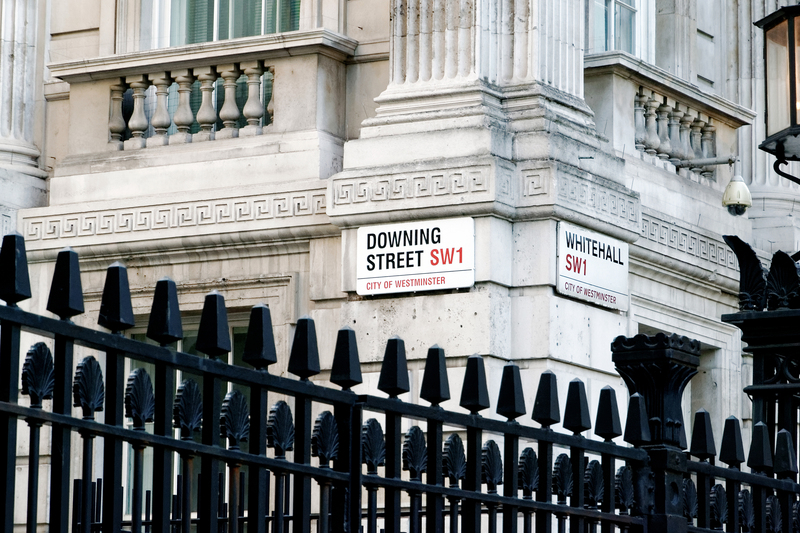Thinking of Moving Your Piano Alone? Here's Why You Shouldn't
Posted on 12/06/2025
Thinking of Moving Your Piano Alone? Here's Why You Shouldn't
Are you considering moving your piano without professional help? You may be tempted to save money and try to move your piano by yourself. However, before you start recruiting some friends and searching for moving blankets, it's critical to understand the risks and challenges involved. Pianos are not only valuable and treasured instruments, but they are also complicated pieces of machinery that require special care when being moved. In this comprehensive article, we shed light on why moving your piano without professionals is a risky decision--and what the safer alternatives are.
Understanding Why Pianos Are So Difficult to Move
Pianos are magnificent musical devices, but their size and structure make them uniquely challenging to transport. Here are some factors that make piano moving particularly complicated:
- Weight and Size: Grand pianos can weigh up to 1,200 pounds, while upright pianos range from 300 to 800 pounds. Their bulky and awkward shapes make them hard to navigate through doors and stairs.
- Complex Mechanisms: Each piano contains thousands of delicate parts. A minor jolt can disrupt the alignment and cause expensive internal damage.
- Fragile Exterior: Pianos are coated with high-gloss finishes and have intricate wooden parts that can easily scratch or crack.
- Shifting Weight: The piano's weight is not evenly distributed, making it more difficult to control, especially with uneven ground or while turning around tight corners.
Even if you think you're strong enough, moving a piano alone is substantially more dangerous and difficult than typical household furniture.

The Hidden Dangers of DIY Piano Moving
When you attempt to move a piano by yourself, you might unintentionally expose yourself, your piano, and your home to substantial risks. Let's review the most common dangers.
Risk of Serious Injury
- Personal Harm: Pianos can cause back strains, crushed fingers, sprained ankles, and even more severe injuries like broken bones or herniated discs. Even multiple adults can struggle to control a piano's weight.
- Risk to Bystanders: Friends or family members helping you might also get hurt if the piano tips, slips, or drops unexpectedly.
Expensive Damage to Your Piano
- Exterior Damage: Scratches, dents, and chips in your piano's finish greatly reduce both its aesthetic and resale value.
- Internal Injury: Internal parts such as hammers, strings, and keys can shift or break. This may lead to expensive repairs, the need for re-tuning, or the piano becoming unplayable.
Home and Property Risks
- Damaging Floors and Walls: Unwieldy pianos often scratch hardwood, gouge floors, or punch holes into drywall when moved unprofessionally.
- Doorways and Stairwells: Trying to fit a large piano through tight corners and doorways can easily cause structural damage to your home.
Insurance Complications
Most homeowner and renter's insurance policies will not cover damage caused by personal moving attempts. If you or someone else is injured, or if your piano is damaged during the move, you could be left paying out-of-pocket.
Common Reasons People Try to Move a Piano Themselves
While the risks are significant, many individuals still consider moving pianos without experts for the following reasons:
- Cost Savings: Hiring professional piano movers might appear expensive upfront.
- DIY Enthusiasm: Some feel pride in accomplishing tough tasks themselves.
- Availability: Scheduling professional movers may take time.
- Underestimating the Challenge: It's easy to underestimate just how cumbersome and fragile pianos are.
While these motivations seem valid at first, the long-term risks and costs usually outweigh the perceived benefits.
Piano Moving Myths--And the Truth
Let's clear up some of the most common myths about moving a piano by yourself:
-
Myth: "I Just Need a Few Strong Friends."
Truth: Even with several helpers, proper equipment and technique are essential for safe piano moving. Many injuries occur despite teamwork. -
Myth: "I Can Move an Upright Piano Like Any Other Furniture."
Truth: A piano's uneven weight distribution makes it much harder to maneuver than typical household items. Removing legs or parts without knowledge can also cause permanent damage. -
Myth: "Renting a Truck and Dolly Is Enough."
Truth: Not all moving equipment is suitable for pianos. Specialized dollies, ramps, padding, and straps are usually necessary.
What Could Go Wrong if You Attempt to Move Your Piano Alone?
Even with preparation, there are countless ways things could go awry during a DIY piano move:
- Piano tips over or falls off the dolly;
- You drop the instrument while going down stairs;
- Piano gets wedged in a doorway, causing stress cracks or damage;
- Severe scratches, dents, or breaks to cabinet and legs;
- Injury to yourself or anyone helping;
- Harms the community's shared spaces (for apartment/condo moves);
- Needs expensive tuning or repair after the move.
Why Hiring Professional Piano Movers Is Worth It
Instead of moving your piano alone, hiring experienced piano movers comes with distinct advantages that ensure your instrument's safety and your peace of mind.
Specialized Equipment
- Professional piano movers use custom dollies, lifting straps, padding, and skids designed specifically for various types of pianos.
- This equipment distributes weight correctly and protects delicate edges and finishes.
Expertise and Experience
- Movers are trained in the best practices for lifting, maneuvering, disassembling, and reassembling pianos safely.
- They know how to handle tight corners, multiple stories, steps, and unique obstacles without causing damage.
Comprehensive Insurance Coverage
- Most professional piano movers are fully insured. This protects you from liability in case of an accident or damage to the instrument or property.
Time and Effort Savings
- Professional movers are efficient and well-organized, meaning the process is completed faster and with fewer headaches.
Proper Reassembly and Placement
- Movers can ensure your piano is placed exactly where you want it and can handle minor post-move adjustments.
How Professional Piano Movers Operate
Here's what you can typically expect when you hire a reputable piano moving company:
- Initial Assessment: Movers evaluate your piano's size, type, current room layout, and any potential obstacles (stairs, narrow doorways, etc.).
- Preparation: They wrap the piano with moving blankets and padding, secure the lid and pedals, and disassemble legs or lyres as necessary.
- Safely Lifting and Transporting: Using specialized equipment, the team lifts and transports the piano with care, maneuvering carefully to avoid bumps or drops.
- Loading/Unloading: Movers know exactly how to secure the piano inside a moving truck and prevent sliding or tipping during transit.
- Reassembly and Final Placement: Once at the new location, they can reassemble and position the piano, recommending ideal placement for sound and safety.
Piano Moving Cost: An Investment in Security
Although the cost to move a piano professionally may seem high, consider what's at risk. The expense of repairs (which can reach thousands of dollars), potential medical bills, property damage, and emotional anguish far exceed the typical moving fee. Professional movers usually offer clear, fixed pricing based on your piano's type, distance, and the complexity of the move, making budgeting straightforward.
Tips to Prepare for Your Piano Move
Whether you're hiring professionals (highly recommended) or absolutely must manage a move within the same property, consider these critical tips:
- Measure Doorways and Pathways: Ensure the instrument can fit through every passage.
- Clear Obstacles: Remove rugs, decor, and furniture from the route.
- Communicate: Inform movers of unique obstacles (stairs, elevators, steep driveways, etc.).
- Check for Tunings: Even with professional handling, you'll likely need to have your piano tuned after moving.
Remember, even moving a piano from one room to another can require expert help.
What to Look for in a Professional Piano Moving Company
If you've decided against moving your piano alone, use this checklist to choose the right moving partner:
- Specialization in Pianos: General movers may not have the right expertise--select a company that focuses on pianos.
- Insurance and Licensing: Ensure your movers are both insured and licensed for your protection.
- References and Reviews: Look up testimonials, reviews, and ask for client references.
- Transparent Pricing: Avoid hidden fees by getting quotes in writing.
- Clear Communication: A reputable company answers questions quickly and explains their process.

The Bottom Line: Is Moving a Piano by Yourself Ever Worth It?
Trust us: moving your piano yourself just isn't worth the risk. It's not simply a matter of muscle--it's about safeguarding the value, longevity, and beauty of a treasured instrument. The dangers involved (to yourself, your helpers, your home, and your piano) are substantial and can have costly consequences.
Professional piano movers exist for a reason. Rely on their expertise so you can enjoy your piano for years to come--without worrying about preventable damage or injuries.
Ready for a Safe Move? Let the Experts Do the Heavy Lifting
Instead of risking everything by moving your piano alone, contact a specialized piano moving service near you. Enjoy peace of mind and focus on making music, not dealing with disasters. Your piano--and your back--will thank you!
Latest Posts
Proven Strategies for Moving Your Mattress and Bed
Leaving No Trace: Effective Home Cleaning Before Moving
Thinking of Moving Your Piano Alone? Here's Why You Shouldn't



